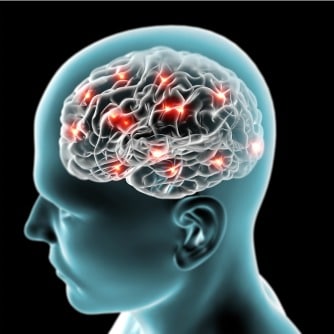Previously, a number of studies suggest that marine omega-3 fatty acids and vitamin D improve cognitive function and behavior in the context of certain brain disorders, such as autism spectrum disorder (ASD), attention deficit hyperactivity disorder (ADHD), bipolar disorder, schizophrenia, and depression.Rhonda Patrick and Bruce Ames, from Children’s Hospital Oakland Research Institute (California, USA), assessed the relevance of omega-3s and vitamin D for neuropsychiatric illness, with specific focus on their effects on serotonin – a brain chemical that affects a wide-range of cognitive functions and behaviors including mood, decision-making, social behavior, impulsive behavior, and even plays a role in social decision-making by keeping in check aggressive social responses or impulsive behavior. Marine omega-3s are abundant in eicosapentaenoic acid (EPA)- which increases serotonin release from presynaptic neurons by reducing inflammatory signaling molecules in the brain known as E2 series prostaglandins, which inhibit serotonin release and suggests how inflammation may negatively impact serotonin in the brain. EPA, however, is not the only omega-3 that plays a role in the serotonin pathway. Docosahexaenoic acid (DHA) also influences the action of various serotonin receptors by making them more accessible to serotonin by increasing cell membrane fluidity in postsynaptic neurons. The team also elucidates how low vitamin D interacts with genetic pathways, such as the serotonin pathway, that are important for brain development, social cognition, and decision-making, and how these gene-micronutrient interactions may influence neuropsychiatric outcomes. Proposing that: “ insufficient levels of vitamin D, EPA, or DHA, in combination with genetic factors and at key periods during development, would lead to dysfunctional serotonin activation and function and may be one underlying mechanism that contributes to neuropsychiatric disorders and depression,” the study authors submit that: “optimizing vitamin D and marine omega-3 fatty acid intake may help prevent and modulate the severity of brain dysfunction.”
Neurology Naturally
Patrick RP, Ames BN. “Vitamin D and the omega-3 fatty acids control serotoni synthesis and action, part 2: relevance for ADHD, bipolar, schizophrenia, and impulsive behavior.” FASEB J. 2015 Feb 24. pii: fj.14-268342.
RELATED ARTICLES




